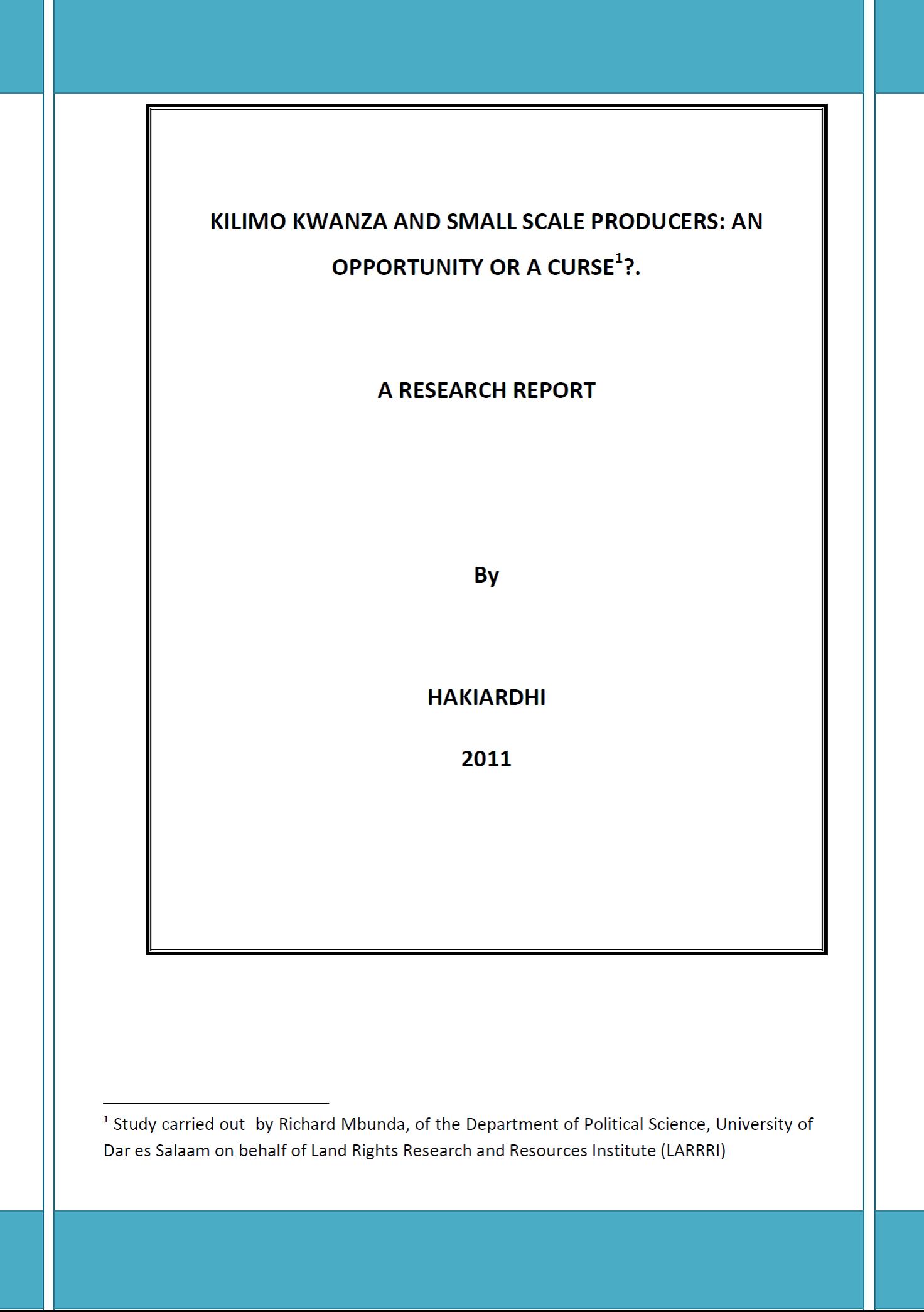The State of the then NAFCO, NARCO and Absentee Landlords' Farms/Ranches in Tanzania
The study sought to determine the state of farms that belonged to the then National Agricultural Corporation (NAFCO), ranches that belong to the National Ranching Company (NAFCO) and land belonging to absentee landlords. Since any state is dynamic, this research report, then, is a socio-historical account of what has been happening within/out more than 543,604 hectares of ranch/farmland in the wake of the fall of nationalization and rise of privatization.












